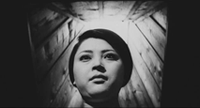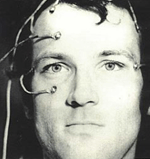In 1938, a beautiful and imaginative aspiring writer, Shen Shao-Hua (Brigitte Lin) leaves home following the death of her father to start a new life, as Japanese soldiers march into town to reinforce the occupation of China. Having spent her early years of adulthood imprisoned by her embittered father in the attic, Shao-Hua created a […]
Category: Directors
Eros Plus Massacre, 1969
Like Shohei Imamura’s A Man Vanishes and Nagisa Oshima’s The Man Who Left His Will on Film, Yoshishige Yoshida’s dense and self-reflexive Eros Plus Massacre explores the murky, often turbulent intersection between reality and fiction, history and memory, angst and revolution – the implication of what Yoshida prefaces as the viewer’s “ambivalent participation” – in […]
The Ball at Anjo House, 1947
Filmed during American postwar occupation, The Ball at Anjo House is a curiously atypical Japanese film that hews eerily closer to the privileged, dysfunctional families and moral abandon of The Magnificent Ambersons or a Douglas Sirk melodrama than a Shochiku middle-class shomin-geki: the proud family patriarch, Tadahiko (Osamu Takizawa) who continues to harbor the illusion […]
Life as a Fatal Sexually Transmitted Disease, 2000
In early 12th century France, a horse thief is captured in the outskirts of a peasant village and brought to the attention of a passing monk in order to receive absolution before being hanged for his crime. Momentarily released from his binding in order to pray, the thief seizes the opportunity to flee from the […]
Weekend Stories, 1996-1997
Set in in post-communist Poland, Weekend Stories presents a series of eight episodes that examine moral dilemma in contemporary life. A Woman’s Business poses the question of forgiveness and finding closure in the absence of acknowledgment of guilt, as a middle-aged, emotionally fractured scientist named Zofia (Joanna Szczepkowska) is presented with an opportunity to face […]
Illumination, 1972
Illumination opens to a dry lecture footage from Professor Wladislaw Tatarkiewicz as he defines illumination as the moment of enlightenment in which the brain sees truth directly, explaining that it is through this state of intensified thought that a person attains wisdom. The film then cuts to a clinical shot of Franciszek (Stanislaw Latallo) as […]




